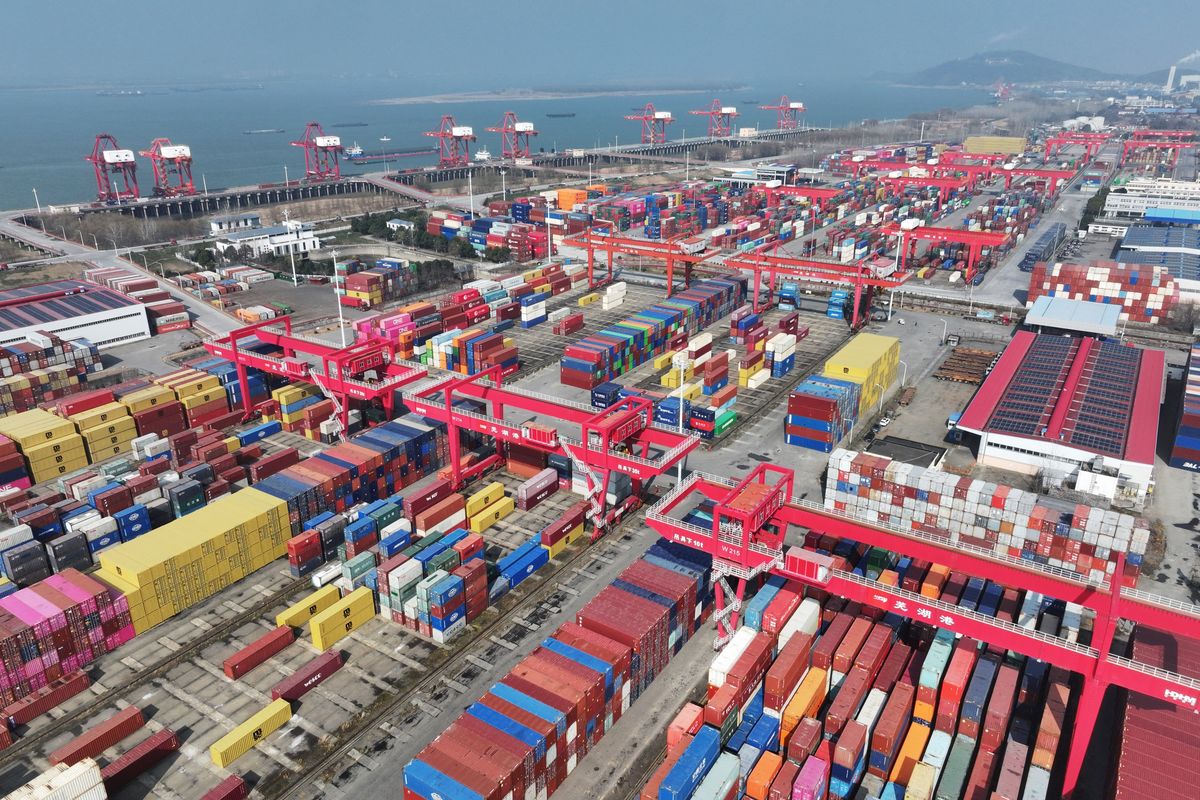Trump threatens to impose more duties on imports from China
Tariffs to cut revenue, profit growth for European corporate sectors
Business Desk
The Business Desk tracks economic trends, market movements, and business developments, offering analysis of both local and global financial news.

President Donald Trump threatened Wednesday to impose an additional 50% tariff on Chinese imports unless Beijing rescinds its retaliatory tariffs on the United States by Tuesday.
The warning comes as global markets experience their third consecutive day of steep declines, following the president’s announcement of a trade war last Wednesday.
The White House initially imposed a 34% tariff on Chinese imports, which prompted Beijing to respond in kind with its own 34% tariff on American goods.
JPMorgan CEO Jamie Dimon has urged a swift resolution to the escalating trade tensions, citing their negative impact on global markets.
In a related development, Fitch Ratings has warned that recently announced U.S. tariffs on European imports, including 20% on goods from the European Union and 10% on imports from the United Kingdom, are expected to weaken revenue and profitability growth across several key corporate sectors in Europe. The chemical, automotive, and hardware technology industries are predicted to be among the hardest hit due to increased competition and weakening economic prospects.
The European chemical sector, which enjoys a trade surplus with the U.S., could face increased competition in global markets, particularly as imports to the U.S. are largely focused on specialty chemicals. Economic slowdowns in the U.S., Europe, and China may exacerbate challenges in an already oversupplied market.
Automotive manufacturers in Europe are also bracing for disruptions, including heightened supply-chain risks tied to Mexico and Canada, alongside reduced global demand driven by slower economic growth. Similarly, telecom equipment producers and alcohol exporters may grapple with higher production costs and shifting consumer preferences due to the new tariffs.
Fitch noted that reduced purchasing power from weakened economic growth and higher food prices could curtail consumer spending on non-essential goods and services. This is expected to impact industries ranging from hospitality to retail, particularly in the low- and mid-price segments.
Other sectors, including healthcare, metals and mining, and oil and gas, may also face mounting pressures as trade barriers reshape competitive dynamics and economic slowdowns affect demand.










Comments
See what people are discussing